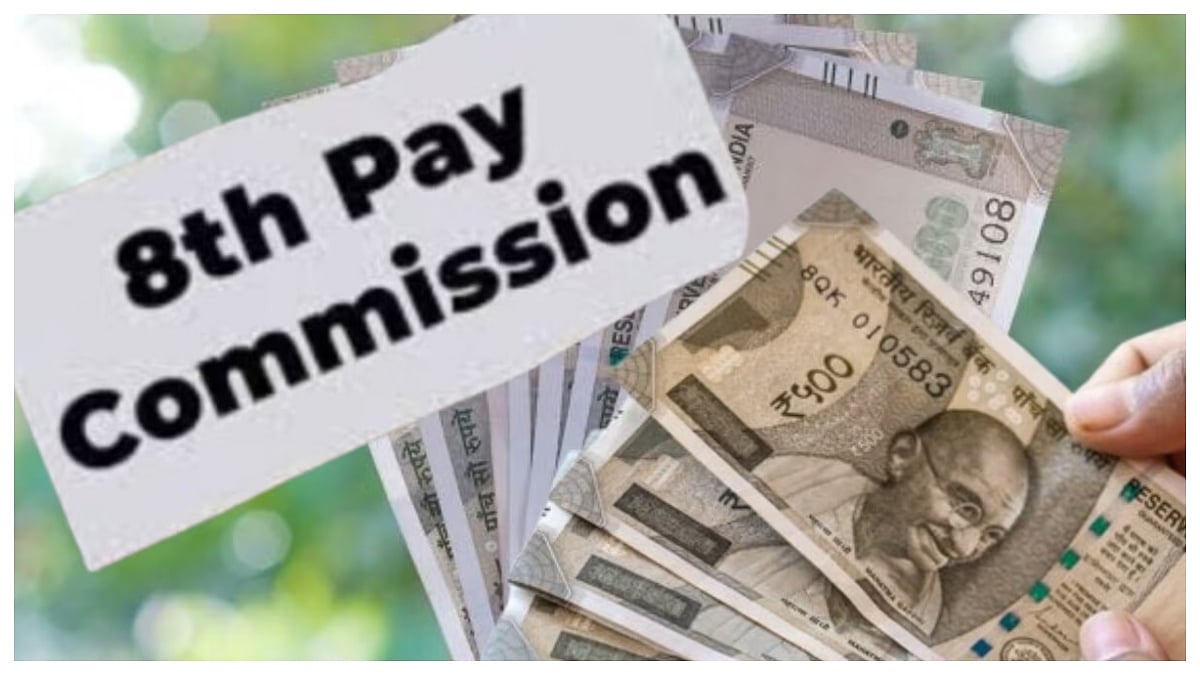The Budget recognizes that capital will unleash growth. The surcharge on the long-term capital gains (LTCG) capped at 15 percent has been a good annoucement, tax experts said. Viewing all providers of capital with the same lens should help encourage deal making, though it will be interesting to see if the pace of deal closures slows down for the balance part of this financial year, they added.
Experts weigh in:
Arun M Kumar, Chairman & CEO, KPMG in India
The Economic Survey 2021-22 projects India’s growth for FY23 at 8-8.5 percent based on extensive vaccine coverage, gains from supply-side reforms, easing of process friction, and expected robust export growth. A reasonable, upbeat outlook that should be caveated by exogenous factors like geopolitical tensions and global oil prices.
Amarjeet Singh, Partner and National Lead, Emerging Giants and Startups, KPMG in India
The new committee being appointed to look at regulatory and other challenges for PEs and VCs will increase the confidence of the community to look at India and its opportunities more favorably. The reduction of surcharge on long term capital assets to 15 percent will help investors in startups to reduce their overall cost of exit. Recognition of the virtual digital assets and prescribing a proper tax regime will lead to establishment of many more startups in this space. The tax regime prescribed will give certainty and will firmly establish cryptos, NFTs etc becoming an investible class of asset.
Elias George, Partner and Head, Government & Public Services (G&PS), KPMG in India
The Budget has attempted to address the key challenges confronting the Indian economy in the wake of the pandemic: ensuring a more inclusive model of economic development, creating fresh employment, ramping up supply-side driven economic growth by focusing on infrastructure creation, enhancing access to digital education and upskilling, as well as boosting production and productivity through PLI schemes for manufacturing industry. There is a welcome emphasis on improving India’s transportation and logistics infrastructure stock and related processes – what has been termed the ‘seven engines’ that drive the PM GatiShakti National Master Plan. Also noteworthy are the incentives and support announced for revivifying the MSME sector, as well as the focus on climate change containment measures, such as energy transition, and for improving the electric vehicle ecosystem in India.
Manish Aggarwal, Partner and Head – Infrastructure and Special Situations Group, KPMG in India
The Budget 2022 has carried forward the positive momentum built with buoyancy in the tax collections, and large investments in capital investments made in fiscal year 2022 to counter the pandemic. A conjoined approach of investing at scale in infrastructure alongside a sharp focus on integrating it via digital technologies for better economic outcomes has been announced. The budget announced a 35 percent uptick in capital expenditure outlay to Rs 7.50 Lakh crore. Seen together with Rs 1 lakh crore support provided to states for capex commitments, this is a very significant increase overall.
Nandita Tripathi, Partner and Tax Sector Head- ENR, KPMG in India
"Green Budget" with a strong push for EVs, clean energy and transition towards circular economy. Announcement of PLI scheme for domestic capacity building and green sovereign bonds, coupled with significant capital expenditure commitment puts the country on the right path for sustainable growth and development.
Narendra Ganpule, Partner, KPMG in India on EVs
While the budget has more of the same, some proposals certainly stand out for the long-lasting impact they can have. Increasing capex by 35 percent to 7.5 lac crores is one of them. India is focused on reviving the economy that has suffered due to pandemic and other systemic lacunae. Enhancing gross domestic capital formation will certainly yield multi-year benefits. While the world is increasingly adopting clean energy, India is almost fully dependent on fossil fuels. Creating nation-wide standards and policies is a great first step to catalyze local industries and bring economies of scale. Though much more was expected on the EV front.
Neeraj Bansal, COO - India Global and National Leader - Supply Chain Realignment, KPMG in India
Budget 2022’s emphasis on logistics, specifically for the Gati Shakti Plan, reiterates how the logistics sector is integral to the economic and trading activities of India. In India, road transportation dominates the logistics sector, with a majority share of 60 per cent, followed by Railways, which has a 30 per cent contribution. Given this context, the Budget’s announcements under the National Gati Shakti plan are a welcome move for the sector. The Gati Shakti Masterplan for Expressways will expand roadways by 25,000 milometres, connecting remote areas of the country with manufacturing hubs. The 100 cargo terminals to be developed under this programme will ensure a more efficient logistics connectivity. The concept of “one station, one project” will help in popularizing local businesses and supply chains, with the Railways to develop projects specifically for the MSME sector. The announcement of contracts to be awarded for multimodal logistics parks also puts into focus the government’s efforts in ensuring logistics efficiency.
Parizad Sirwalla, Partner and Head, Global Mobility Services, Tax, KPMG in India
With the higher capex and fiscal deficit target the Finance Minister has limited specific relief to individual taxpayers. To provide impetus to trust based governance as a concept, an updated tax return system has been introduced wherein a taxpayer can file a tax return upon payment of specified taxes within 2 years from the end of the relevant assessment year. A specific tax regime is introduced for income from virtual digital assets to be taxed at the rate of 30 percent with no deduction for any expenditure except the cost of acquisition of such asset.
Interestingly, some relief to individuals with income above 2 crores in the form of capping of surcharge at 15 percent on long-term capital gains (on specified assets) from existing graduated rates. It would be relevant to analyze the fine print of the finance bill for other announcements and tax sops if any on the personal tax front.
Rajeev Dimri, Partner and National Head of Tax, KPMG in India
The Budget proposal lay the foundation for strengthening of different sectors like transportation and logistics sectors (Gati shakti), banking and fintech (75 digital units to be set up), agriculture, EV sector (battery swapping policy), among others. On the Direct tax front, to further ease compliances for taxpayers, the new IT return system to be introduced; this space to be watched out. The Government has only marginally increased the time limit to commence production by 31.03.2024 for units opting for the beneficial corporate tax rate of 15 percent. Some steps seem to have taken to reduce litigation, by restricting appeal rights of revenue authorities for consecutive years. Introduction of digital currency by RBI and taxation of digital assets at 30% is a point for discussion, however it would provide some relief for crypto currency holders that are currently being traded in India.
Rajosik Banerjee, Partner and Head, Financial Risk Management, KPMG in India
Digital Rupee using blockchain technology will lead to stable, efficient, regulated payments and settlements and lowered transaction cost. This initiative is expected to boost the digital economy and reduce leakages by lowering dependency on cash.
Sanjay Doshi, Partner and Head, Financial Services Advisory, KPMG in India
Financial inclusion of account holders across 1.5 lakh post offices. A master stroke of connecting 1.5 lakhs post offices to the Core banking from a financial inclusion and banking access to non-banked population. A win-win situation-- access for banks to post office accounts and deposit holders; Ease of access to banking customers is an opportunity for post office savings schemes to tap the deposits lying with banks; and interoperability will provide banking infrastructure access (for e.g. Bank ATMs) to Post office customers.
Santosh Dalvi, Partner and Deputy Head, Indirect Tax, KPMG in India
The fiscal Budget 2022-23 proposals, Nirmala Sitharaman’s fourth budget, is aptly power packed to encourage Make In India and Atmanirbhar Bharat. The proposals meet its objective of encouraging manufacture in India with the right push on capital expenditure, infra projects, Production Linked Incentive Schemes, phasing out of Customs Duty on import of finished goods and concessional Customs Duty on inputs. In this, it supports all critical sectors of India including electrical products, Chemicals, Gems & Jewelry, Steel etc
Vaibhav Gupta, Partner, Dhruva Advisors
Crypto/ Virtual Digital assets taxation: The move to introduce a flat rate of 30 percent tax on digital assets helps provide certainty in the taxation of these assets without necessarily admitting the legitimacy or otherwise of these transactions. Not allowing set off of any losses arising on such assets against profits of any such other assets makes taxation of these assets even stringent than how speculation business income is taxed, where apart from allowing set off within speculation activity, carry forward is also permitted for 4 years."
Long term capital gains: It is indeed a very welcome move as it almost brings parity in taxes amongst various classes of investors on gains arising from the sale of the same class of assets. Viewing all providers of capital with the same lens should help encourage deal making, though it will be interesting to see if the pace of deal closures slows down for the balance part of this financial year.
Vivek Agarwal, Partner and Co-lead, Economic Development Advisory and Sector Lead - Tourism, KPMG in India
A well-rounded budget with focus on long term growth agenda across four key tenets – Infrastructure development and Capex Enhancement, Focus on Productivity, Financial Inclusion and Digital deepening. Spurring private investment through PPP and Innovative financing mechanism across sectors will go a long way in setting in next phase of growth cycle. Enhancing ECLGS to 5 lakh crores with focus on hospitality is a welcome announcement for tourism and hospitality sector”
Vivek Gupta, Partner and Head, M&A and PE Tax, KPMG in India
The Budget recognizes that capital will unleash growth. Significant increase in government capex coupled with a re-look at the regime for private capital (PE/ VC) signals the seriousness of the government on this count. Lowering the surcharge on capital gains for all assets is interesting and will help both start-ups and possibly, real estate. This is an “Invest in India” budget!
Waman Parkhi, Partner, Indirect Tax, KPMG in India
The Union Budget looks at Information Technology as the primary enabler for growth, be it Agriculture, Health (like tele mental health centres) education (like network of television channels and internet to create and disseminate local language content) governance (like billing and tracking of procurement on portal) digital rupee (to be issued by RBI). The stress on reducing compliance, bringing standardisation (State and central government portals will talk to each other, standardisation would be brought in for electric batteries to ensure battery swapping to fuel electric mobility growth) and using Information technology underline the theme of bringing efficiency to operations in the economy. This would require lesser additional investment but returns in terms of growth would be much higher.
Yezdi Nagporewalla, CEO-designate, KPMG in India
This is a pro-growth Budget. It has taken a holistic and integrated perspective to all key issues including green transition requirements. Effective implementation should now be the aim to aid growth. With a continued focus on infrastructure development, the current Union Budget also aims to boost the renewable energy sector, offer much-needed support to the MSME sector, and make new headways into digital currency regulations. This will aid the growth of the economy and drive it out of the headwinds faced during COVID-19. Focus on and support for forward-looking technologies such as digital currency, 5G, EVs and use of drone technologies as laid out in the budget will help the country in its progress during the “Amrith Kaal”.









